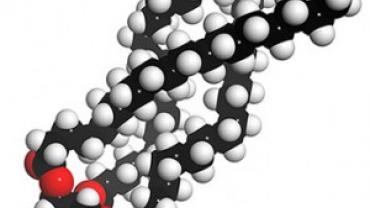
A growing body of evidence indicates that Alzheimers disease (AD) its precursor mild cognitive impairment (MCI) and other conditions that interfere with cognitive function can be added to the list of “diseases of civilizationthat largely result from diets and lifestyles discordant from those we are presumed to be best genetically adapted to. These debilitating conditions which interfere with learning memory processing and behavior are believed to be linked to a failure on the part of the brain to properly metabolize glucose. The evidence linking poor glucoregulation and hyperinsulinemia to cognitive impairment is so strong in fact that some researchers have taken to calling Alzheimer's disease type 3 diabetes.
Given the overwhelming indications that declining cognitive function is closely linked to a reduction in the brain's ability to use glucose (potentially as the long-term result of a diet high in refined carbohydrates) it stands to reason that providing the brain with an alternative fuel might give AD and MCI sufferers some degree of relief from these conditions for which conventional pharmaceuticals are mostly ineffective.
Under conditions of fasting starvation or simple carbohydrate restriction the brain will turn to ketones as a source of energy to fill the gap in what glucose cannot provide. When blood ketone levels are sufficiently elevated ketones can fulfill up to 60% of the brain's energy requirements. The therapeutic potential of ketones in regard to cognitive function is so promising that a prominent AD researcher noted that a drawback of the modern carb-heavy diet is that it is “keto-deficient.
An obvious way to raise blood ketones is by cutting back dramatically on carbohydrates which will transition the body from relying on constant influxes of glucose toward a more fat-based metabolism (ketones being breakdown products of fatty acid metabolism). However since not everyone is willing or able to reduce their carbohydrate intake to the point where they would generate sufficient ketones to keep the brain well-fueled it would be helpful if there were another way to boost ketone levels.
Fortunately there is. Medium-chain triglycerides (MCTs) can provide the body with ketones even in the absence of carbohydrate restriction. Because of their chemical structure and carbon chain length MCTs are metabolized differently from long-chain fatty acids. They do not require bile for emulsification and pass readily into the portal circulation where they are broken down into ketones which can serve as fuel for many different tissues most notably the brain. The richest sources of medium-chain fatty acids are coconut and palm kernel oils but isolated MCT oils and fortified beverages are now available.
We don't have to hope and presume that MCTs can help improve cognitive function. Several double-blind randomized control trials have shown that MCT preparations do elevate ketone levels and these elevated ketone levels correlate with improved performance on tests of memory and cognition. (Results were more impressive for subjects negative for the APOE-4 allele the strongest known genetic risk facto for AD and MCI but even among 4 carriers elevated ketones were associated with improvement in some indices.)
While certainly not a panacea all on its own MCTs could certainly be a powerful adjunct to a reduced-carbohydrate diet which would likely go further toward facilitating the body's generation of ketones. And in the context of a lower-carb diet with the specific goal of improving brain health additional ketones via supplemental MCTs could give the struggling brain a much needed extra boost.
Related Resource Material: Clinical Rounds: April 03 2013 Preventing Cognitive Decline Eric Braverman MD